Liturgical Calendar
Semi-double Green vestments
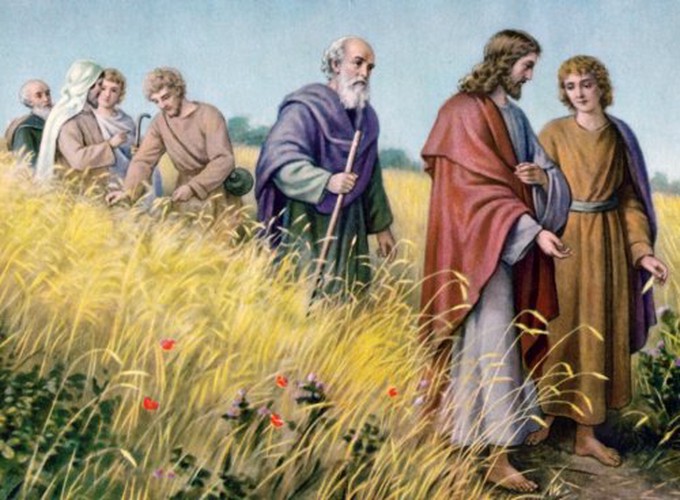
God has sown the good seed generously in His field, the world; He has sown grace and love, and the desire for total oblation, the ideals of an apostolic, religious, saintly life. But, in the midst of all this good, the enemy comes to sow evil. Why does God permit this? To sift His servants as we sift grain, to test them. . . . we should consider that, whereas cockle cannot be changed into wheat, it is always possible for the wicked to be converted and become good. Were not Magdalen, the good thief, and Peter, who had denied Jesus, converted? This is one of the strongest motives to incite us to do good to all. When our love is perfect, we are able to live among the wicked without being harsh or contentious, without being influenced by them, but rather doing them good.
The divinity of Jesus is affirmed by His doctrine at which the Jews of Nazareth wondered (Communion). In Jesus’ kingdom here on earth there are both good and bad subjects, wheat and tares, and it is only when our Lord comes to judge men, that He will separate the one from the other for all eternity.
Semi-double Green vestments
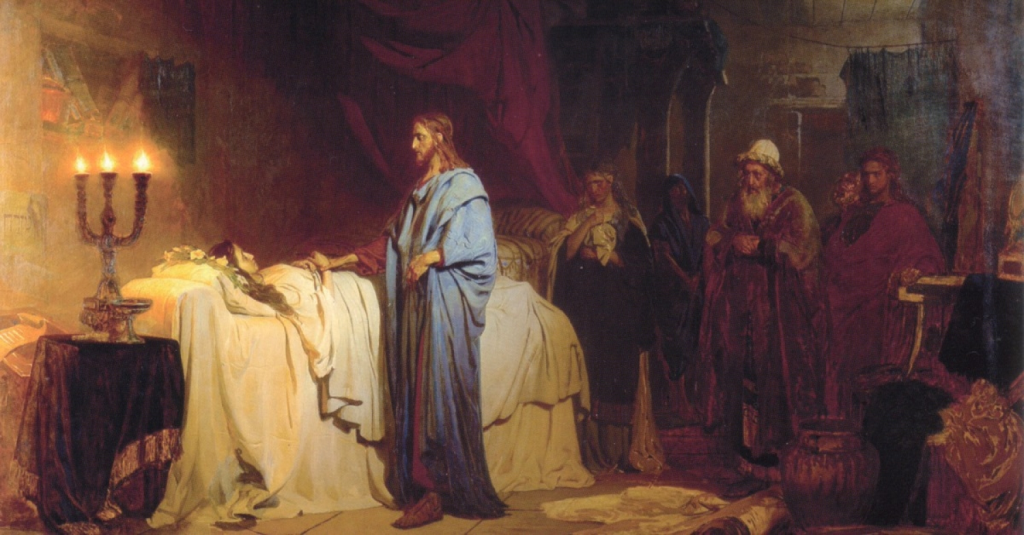
The season after Pentecost is a symbol of the long pilgrimage of the Church towards heaven; that is why the last Sundays describe to us prophetically its last stages.
At the end of the world, the Lord foretold on one occasion, there will be such a recrudescence of evil that the charity of many will grow cold. Crushing trials will then afflict Christians as they once afflicted Israel when they turned away from the Cross (Epistle).
From the depths of the abyss, the nations will cry to God (Gradual, Offertory) and God, whose thoughts are of peace and not of anger (Introit), and who always hears prayers made with faith (Communion), will pardon nations for their offenses (Collect), and will deliver both the Gentiles and the Synagogue from their captivity (Introit, Gradual).
Both indeed are figured as St. Jerome explains in his homily on the Gospel, by the two women healed by Jesus. The one with an issue of blood is first restored to health, and the daughter of the prince of the synagogue afterwards, for the Apostle has said: “When the fullness of the Gentiles shall have entered, then shall all Israel be saved.”
Double of the First Class White Vestments
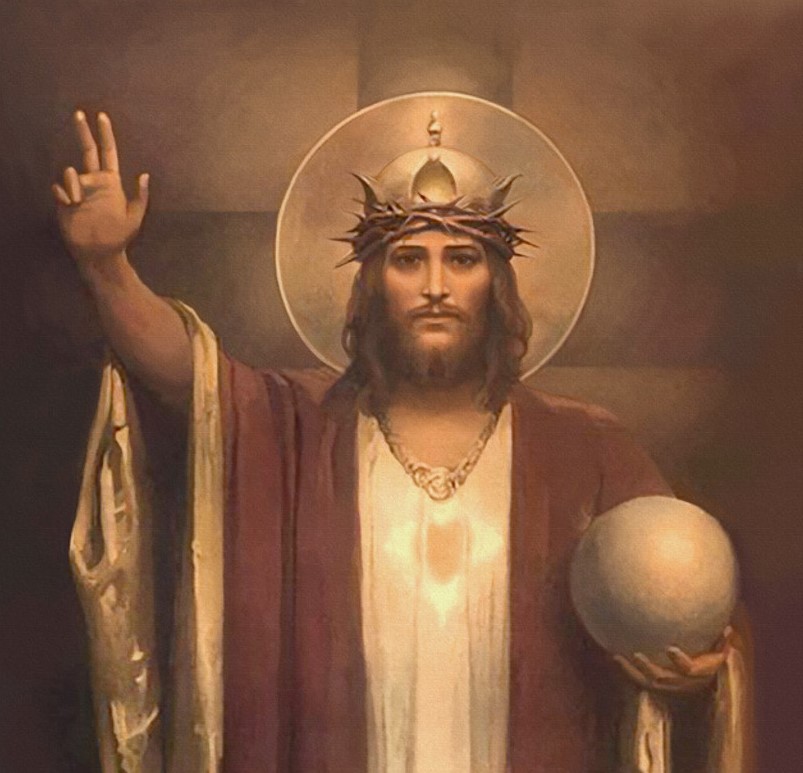
Instituting this feast, Pius XI pointed out in his encyclical letter of December 11, 1925, that people are instructed in truths of the faith, far more effectually by the annual celebration by our sacred mysteries than by any procurement, however weighty, of the teaching of the Church. This feast will draw attention to the evils which laicism has brought upon society. It sets the crowning glory upon the mysteries of the life of Christ already commemorated during the year; before celebrating the triumph of all the saints, we proclaim the glory of the King of all saints, in heaven, in purgatory, and on earth.
Jesus is our King in the true sense of the word: He has created us, redeemed us, vivified us by His grace, He nourishes us with His Flesh and Blood, He governs us with love, and by love He draws us to Himself. In the face of such considerations, the cry of St. Paul rises spontaneously from our heart: “Giving thanks to God the Father . . .Who hath delivered us from the power of darkness, and hath translated us into the kingdom of the Son of His love, in whom we have redemption, the remission of sins.” Christ’s Kingdom is not of this world. His Kingdom is so sublime that no dishonor, no insults can eclipse it. But, He prefers to manifest His Kingship far more as a conquest of His Blood than as a title belonging to Him in virtue of His divine nature. We should go to meet this divine King with all the yearning of our soul. He presents Himself to us under an appearance so human, so loving, so welcoming, stretching out His arms on the Cross to invite all to come to Him, showing us the wound in His side as the symbol of His Love. Far from trying to escape His dominion, we should beseech Him to be the sole Ruler of our mind and heart, and the complete Master of our will.
Double, Green
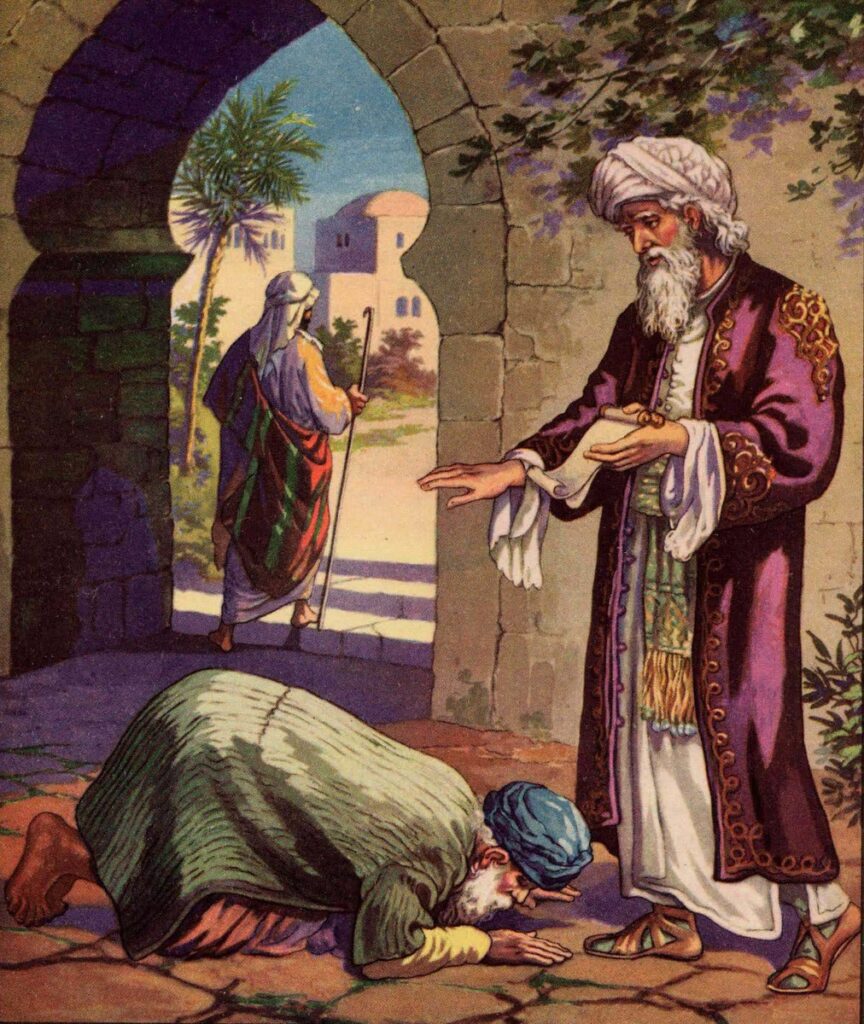
Many temptations result from exposing ourselves to persons, places, and things that entice us to unlawful satisfaction. Other temptations come from reflex actions of our instincts. But some temptations may be due to the subtle deceptions of the devil. A fallen angel, the devil retains the intelligence of an angel and directs all his rebellious hatred to detracting from God’s glory and undoing Christ’s work. But the devil can do only what God permits him to do. Sometimes God may permit severe temptations of every sort, in order to humble and purify a person for a special grace or a special office. Even the devil is made to serve God’s purposes.
Semi-double Green vestments
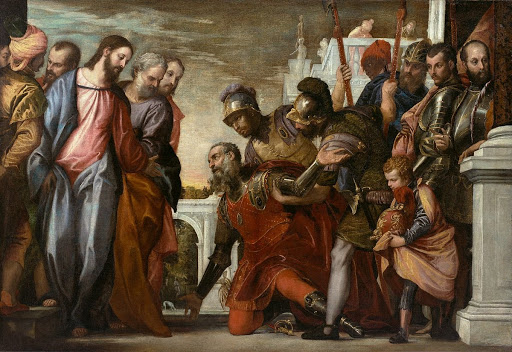
Our misfortunes are caused by our unfaithfulness in conforming to the divine will (Introit, Epistle). Therefore, in the same way as the people of Israel when in exile lamented their sins and prayed for God’s mercy (Introit, Offertory), so the Christian people ask the Lord to pardon their sins, so that they may serve Him with a tranquil heart (Collect), and always obey His commandments (Postcommunion).
Like the King’s ruler of whom the Gospel speaks, they persevere with confidence (Communion) in their prayer; as he obtained the healing of his divine son, so do they obtain it for their souls (Secret).
Second Class – Green vestments
The Gospel reminds us that all men are called to the marriage feast of heavenly bliss. The Jews have refused to take part in it. Therefore, the apostles and the Church have turned towards the Gentiles. The beatific union is announced, prepared for, and in a certain manner begun, by sacramental Communion.
To take part in a marriage feast among the Jews, it was necessary to wear a wedding garment. Similarly, to receive the body of Jesus at the holy table and to be in communion with His divinity in heaven, one must wear the nuptial robe of baptism, or to be in the state of grace. Therefore the apostle exhorts us to put on the new man (Epistle).
Semi-double Green vestments
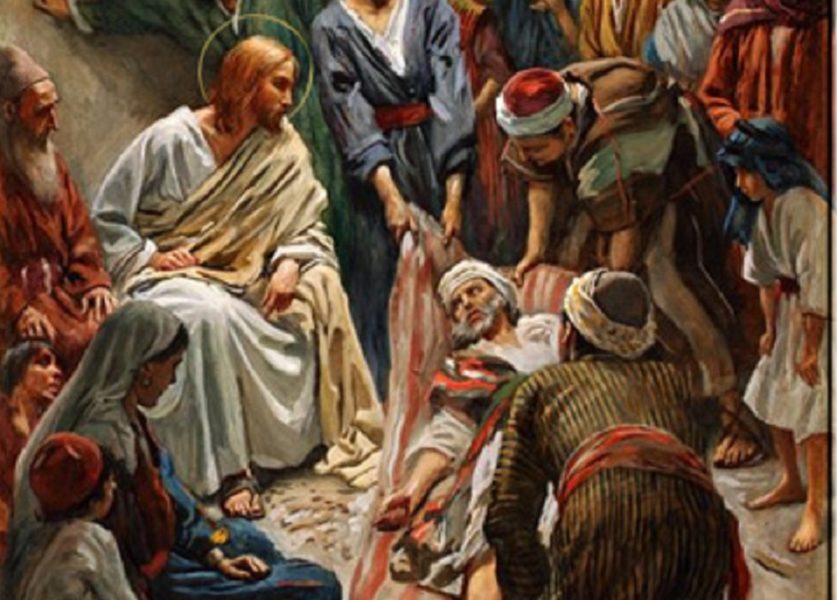
This 18th Sunday was originally (not necessarily nowadays) the Sunday following Ember Saturday with its ordinations. As these lasted until the Sunday morning, this day had no proper Mass. Later on they borrowed for this Sunday the Mass composed in the sixth century for the Dedication of the Church of St. Michael, at Rome, which occurs about this time (September 29). That is why all the chants relate to the consecration of a church (Verse of Introit, Gradual, Offertory, Communion). The Epistle and Gospel also allude to the newly ordained priests “blessed in Christ” and endowed with the power to pardon sinners.
Semi-double Green vestments
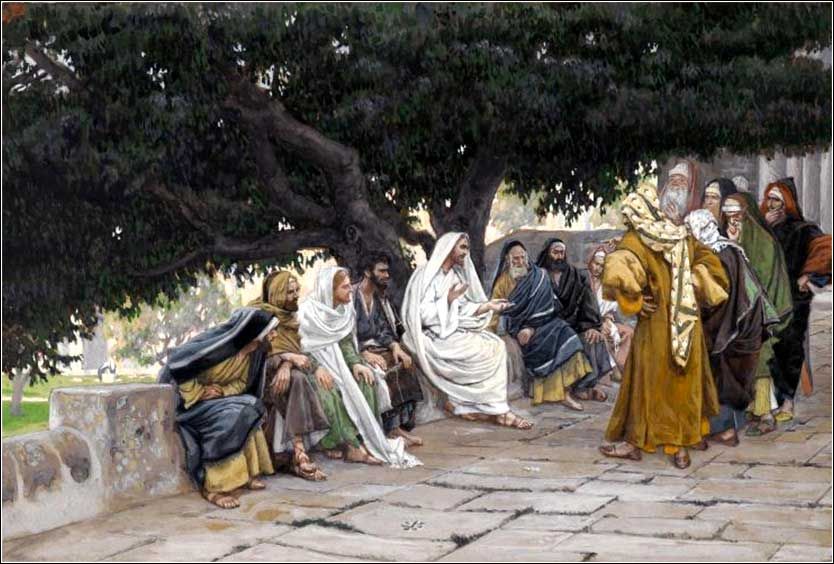
Today’s Epistle and Gospel remind us of the great duty of charity towards God and our neighbors.
The unity if our faith, of our baptism and of our hopes, like unto the unity of the Holy Ghost, of Christ and of the Father, imposes on us all the duty, as St. Paul says, of being united in the bonds of charity (Epistle).
The commandment to love our neighbor, as Jesus also says, is akin to that which makes us love God, as it is for His sake that we love our neighbor. “Double is the commandment,” declares St. Augustine, “but one is charity.”
Semi-double Green vestments
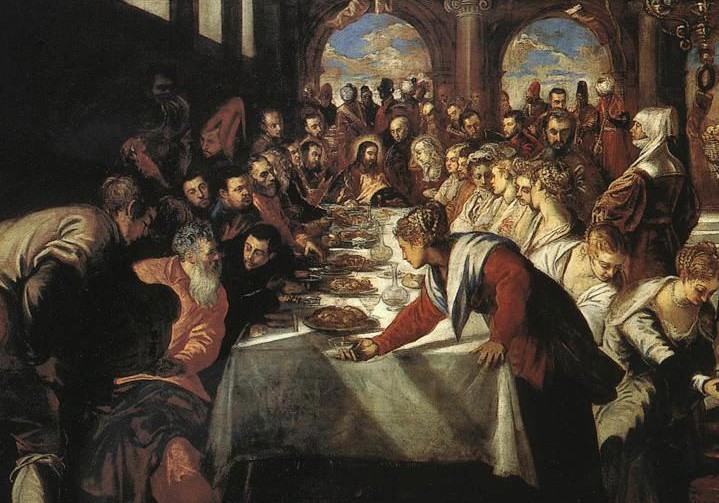
The supernatural life of our souls requires that the grace of God should always go before us and accompany us (Collect). To Him be glory (Epistle), for He heals our infirmities (Gospel), and remains our support. Wherefore He teaches us in the Gospel the virtue of humility. In a short parable, He shows that God raises whoever humiliates himself.
Semi-double Green vestments
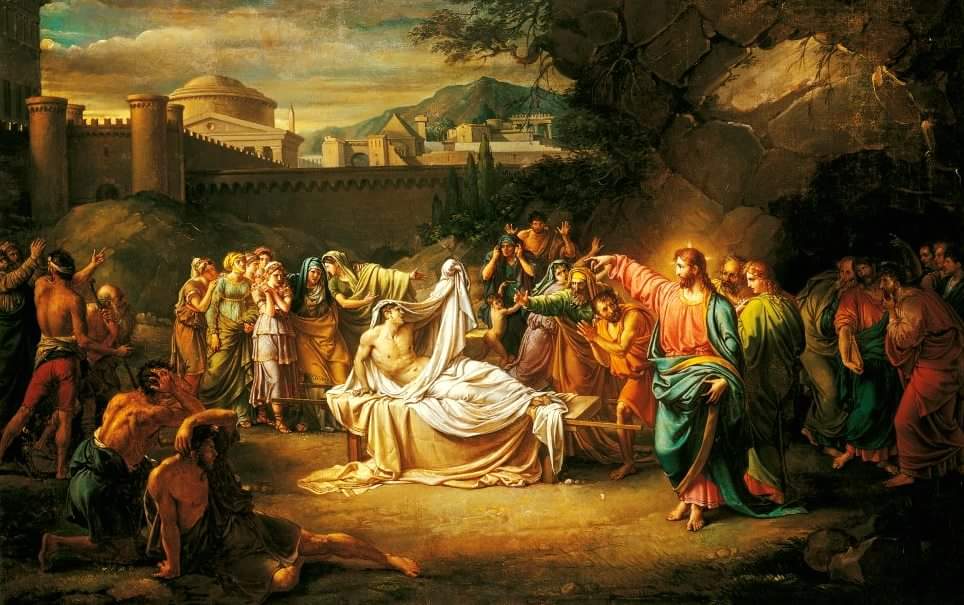
Christ has snatched us from the death of sin as He once snatched the young man of Naim from natural death. In this He responds to the compassion He feels for Our mother the Church who laments over sinners, just as He was moved by the poor widow who lamented over her son (Gospel).
This supernatural life, which is that of the Church, must always dwell in us and bear fruit. It will not only make us avoid the works of the flesh, as St. Paul told us last Sunday, but also practice the works of the Spirit: namely love of our neighbor and mistrust in ourselves, since we are nothing without Jesus Christ (Epistle).
"Listen carefully, my son, to the master's instructions, and attend to them with the ear of your heart. This is advice from a father who loves you: welcome it, and faithfully put it into practice"
~ St. Benedict of Nursia ~
Copyright © 2015-2025 Saint Joseph Catholic Church, Latin Mass Parish, 602 S 34th St., Tacoma, WA 98418. All Rights Reserved.
Website comments or questions: info@saintjosephtacoma.org


